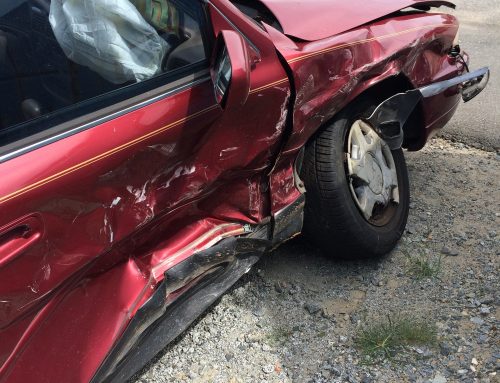Driving while impaired in any way is never a good idea. We are all aware of the sobering statistics about driving while under the influence, driving while fatigued, or driving while distracted by your phone. Each of these actions is typically deemed legally negligent if an accident ensues because of them. But if you suffer from allergies or have COVID, would “driving while under the weather” be considered negligent in the same way?
The last few years have inspired many people to reconsider how they think about personal responsibility – and how our actions could cause problems for the people around us. In the past, someone with a cold rarely thought twice about going shopping or reporting for work. Now someone who is sneezing or coughing is far more likely to stay home -and most people would want them to. Individuals with telltale symptoms are more likely to get tested or see a doctor for a diagnosis than in the past. Should driving while sick be considered negligent in this era of increased vigilance about our personal choices?
While COVID is associated with a lot of fear and stigma, the answer about driving while sick in any way is easily answered. Anyone who drives a car under any circumstances that can impact their ability to be fully attentive may be considered negligent in a lawsuit. Therefore, driving may not be the best idea if you are experiencing any symptoms – from a fever to a headache or nagging cough. And, of course, driving while taking any type of drug that can make you dizzy or drowsy is always taboo.
Driving While Sick
Studies have proven that sick motorists exhibit a 50% drop in their ability to concentrate, making them less alert and influencing reaction times. While an individual may not consider it a problem to get behind the wheel if sneezing, research has equated driving capability while sick with having had four alcoholic drinks! According to government statistics, one-fifth of the population contracts the flu annually – and 40% of them admit to driving their vehicle while sick with the flu. Here in Florida, the sneezing and watery eyes associated with seasonal allergies can prove deadly on the road.
Fast Fact: Sneezing is involuntary, and a single sneeze takes a motorist’s eyes off the road for approximately 3 seconds. Two or three successive sneezes mean losing visual sight of the road for 5 seconds or more. Those experiencing a cold or allergies must be even more vigilant in maintaining a safe distance from all other cars and remaining aware of their surroundings at all times.
But Is a Sick Motorist Negligent?
If an insurance company or other party to an accident can prove that you were sick when you willingly drove your car, you could, in fact, be found negligent and be held liable. Therefore it is always safer to ask someone you trust to drive you to your appointment or other destination. If you are seriously ill and need assistance, you can call 911.
Driving under the influence of cold medication or painkillers would typically be considered a clear sign of negligence. Both of these can result in drowsiness, confusion, or blurry vision, and serious accidents can occur.
Although sickness does not discriminate, people must avoid situations that could foreseeably put others in danger. If you have been injured in a car accident and suspect that the other party was “driving while sick,” call the law offices of Probinsky & Cole for assistance.








